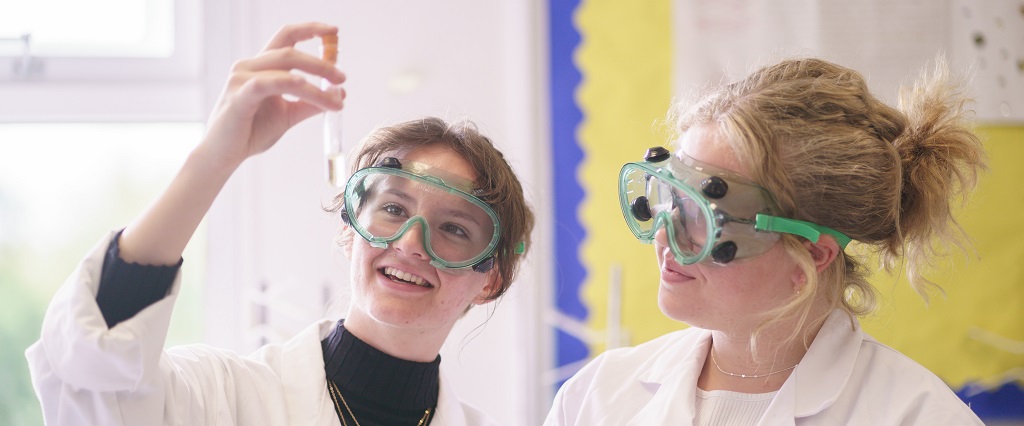
Biology

Biology involves the study of a wide range of exciting topics, ranging from molecular biology to the study of ecosystems and from micro-organisms to mammoths.
Biology is never far from the headlines either…
The human genome has been sequenced and we know the complete arrangement of the three thousand million bases that make up human DNA. In Kenya 350 people die every day from AIDS and in South East Asia the skies are dark with smoke as the last Bornean rainforests are burned to grow oil palms.
Biologists are concerned with all these issues. They work in the fields of cell biology, medicine, food production and ecology… and the work they do is vital to us all.
Where the course leads
Biology is one of the most popular A Level subjects in the country, attracting students studying a wide range of other subjects. Many of these students enjoy the subject so much they eventually choose a biologically related degree course. Others go on to careers in law, computing, accounting or teaching.
Biology is a great choice of subject for people who want a career in health and clinical professions, such as medicine, dentistry, veterinary science, physiotherapy, pharmacy, optometry, nursing, zoology, marine biology or forensic science.
AQA Biology (from September 2015)
| AS Content | A-level Content Only | ||
| 1. |
Biological molecules |
5. |
Energy transfers in and between organisms |
| 2. |
Cells |
6. |
Organisms respond to changes in their internal and external environments |
| 3. |
Organisms exchange substances with their environment |
7. |
Genetics, populations, evolution and ecosystems |
| 4. |
Genetic information, variation and relationships between organisms |
8. |
The control of gene expression |
| AS Assessment | A-level Assessment |
| Paper 1:
Content from topics 1 to 4, including relevant practical skills. |
Paper 1:
Content from topics 1 to 4, including relevant practical skills. |
| Paper 2:
Content from topics 1 to 4, including relevant practical skills. |
Paper 2:
Content from topics 5 to 8, including relevant practical skills. |
| Paper 3:
Content from topics 1 to 8. |
Assessment of Practical Skills
- No coursework or controlled assessment.
- Students will do at least 12 practicals during their A-level course.
- Practicals cover the use of a set of apparatus and techniques common to all exam boards.
- Practical work is assessed in the written papers. 15% of the exam paper will be for assessing practical knowledge and understanding.
- A separate ‘endorsement’ of practical work at A-level will be assessed by teachers. If students pass it is reported on their certificate alongside their grade; otherwise it will not be reported.
Entry requirements
Students will need to be eligible to follow the Academic pathway and in addition they should achieve:
- GCSE Biology grade 6 and GCSE Chemistry grade 6
- or GCSE Combined Science grade 66 (with a 6 in the Biology and Chemistry exams)
- GCSE Maths grade 6
For further advice contact: Mrs Robinson lrobinson@purbeck.dorset.sch.uk













